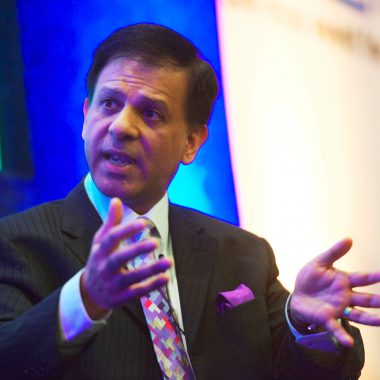Commissioners must set up much clearer service contracts with providers to stop the ‘avalanche’ of unfunded work being transferred to primary care, according to the chair of the GPC.
Dr Chaand Nagpaul called on every CCG to create service specifications that included strict measures such as a ban on hospitals asking patients to see their GP for a re-referral after failing to attend an outpatient appointment and mandating every Med 3 discharge to cover a patient’s full recovery.
Speaking at the Pulse Live conference, Dr Nagpaul said he had written to CCG leaders urging them to support GP practices whose workload was so unsustainable they were putting themselves at risk of not providing core care with the continuing transfer of work.
Dr Nagpaul said he was telling CCG leaders that their job ‘needs to be about supporting GPs, practices and putting an end to this unresourced workload shift’.
He told delegates: ‘Some of this is not just the work, it’s work that is really outside a GP’s competence – GPs are prescribing drugs we shouldn’t and providing treatments we’re not to competent to because we’re faced with the patient.’
He added: ‘There are things CCGs can do to put an end to this avalanche of unresourced work.’
Dr Nagpaul cautioned GPs over signing up for co-commissioning, warning they could end up ‘at the mercy’ of local contracts that may allow them to drop the QOF but mean working harder for the same pay – without the GPC to stand up for them.
He said: ‘In a local contract, who would GPs turn to? You would have to be very confident in the relationship with your CCG.’
Asked about the impact of the 2004 contract on the current loss of partners, Dr Nagpaul also admitted that some of the problems general practice now faces related to ‘the way the 2004 GP contract was implemented’.
He said: ‘I think the implementation of the 2004 contract didn’t go as planned. You’ll remember the slogan was “no new work without pay” and we’ve seen the opposite. We had an era where many partnerships didn’t value taking on new partners and we saw a salaried GP workforce that then took on a function that wasn’t the same as the partnership
‘I very much believe in the partnership ethos. I believe doctors working in a collective whole, with equal status, is the best way to achieve the best productivity in a group practice. That way of partners employing salaried GPs “to do the work” is something I would regret and some practices may have done so.’

















